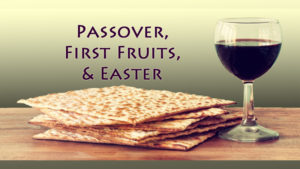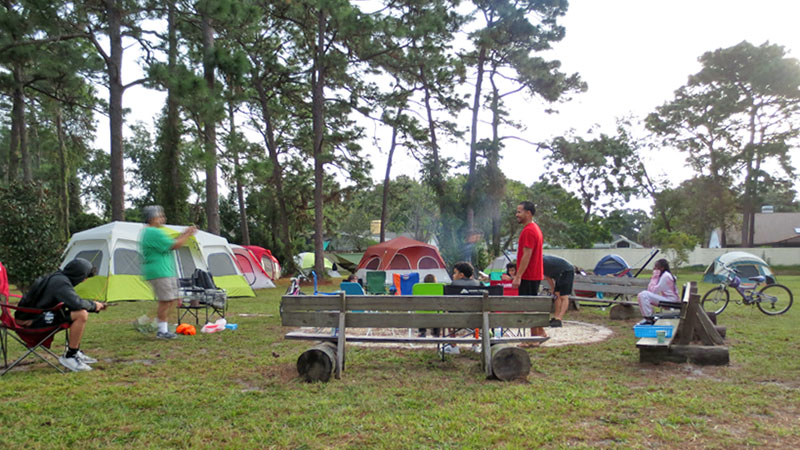 This year, the Biblical festival of Passover began at sundown on Saturday, April 12, 2025. The celebration continues with the Feast of Unleavened Bread through April 20th, while the Christian festival of Easter is celebrated on Sunday, April 20th.
This year, the Biblical festival of Passover began at sundown on Saturday, April 12, 2025. The celebration continues with the Feast of Unleavened Bread through April 20th, while the Christian festival of Easter is celebrated on Sunday, April 20th.
Since these festivals are based on the same Biblical events, I would like to describe both festivals and discuss how they have come to mean different things. First we will describe the festivals associated with Passover.
Everyone knows, I suppose, that Passover commemorates the deliverance of Israel from the land of Egypt some 3500 years ago. Egypt at that time was the most powerful nation of the ancient world. God moved with such boldness and strength that the infant nation of Israel was freed from the grasp of Egyptian slavery and set on their journey to the promised land. From that time until today, God’s people have rehearsed this deliverance each year at the time of the first full moon of spring (As spring occurs in the northern hemisphere).
Biblical festivals were declared by God to be His festivals (Leviticus 23:37). God’s festivals recur around the number seven. The weekly festival of Shabbat occurs at the end of the seven day week. Passover which happens in the middle of the first month initiates the timing of the other festivals which occur later in the year. Following Passover is the festival of Firstfruits which happens during the week initiated by Passover. Seven weeks from the celebration of Firstfruits comes Shavuot (Christians know this festival as Pentecost). Seven months from Passover the last of the yearly festivals occurs. This is called Sukkot or the Feast of Tabernacles.
When we look back at Passover we remember the mighty deliverance of Israel from Egypt. The deliverance has become the basis of hope for all people who find themselves in bondage. Additionally, this festival points forward to the deliverance of the whole human community from Satanic bondage. Paul described the struggle against this captor as:
“For our struggle is not against flesh and blood, but against the rulers, against the powers, against the world forces of this darkness, against the spiritual forces of wickedness in the heavenly places.” (Ephesians 6:12)
John later declared the ultimate victory over this captor:
“The kingdom of the world has become the kingdom of our Lord and of His Christ (Messiah) and He will reign forever and ever.” (Revelation 11:15)
The festival of Passover initiates a week long observance of Unleavened Bread. Because Israel left Egypt in a great hurry they did not have time for their bread to rise so they ate unleavened bread. God’s people remember this during the Feast of Unleavened Bread. During this week, following the Shabbat, is the festival of Firstfruits. The ancient Israelis were farmers and their festivals were often symbolized through agricultural means. In Israel, small grain crops (wheat and barley) are sown in the late fall. By early spring these crops have grown to full height and began to produce heads but has not fully matured and ripened. At Passover the Israelis would cut a bundle of wheat or barley and bring it to the Priest in the Temple. The Priest would wave this bundle of grain before the Lord with the prayer that God would produce a great harvest. This was observed on the first day of the week following Passover during the week of Unleavened Bread. We read in the Gospel account of the resurrection of Messiah Jesus which occurred on the first day of the week. Since Jesus was crucified just before Passover, this happened during the week of unleavened bread. As Jesus was being raised up, the Priest in the Temple would have been waving the Firstfruits offering for that year. Later, Paul declared:
“But now Christ has been raised from the dead, the first fruits of those who are asleep.” (I Corinthians 15:20)
Seven complete weeks from the day of the Firstfruits offering when Jesus was raised from the dead, His followers were celebrating Shavuot in the upper room in Jerusalem when they were filled with the Holy Spirit. Christians call this event Pentecost. These believers were empowered with the Holy Spirit and ushered into Kingdom or resurrection perception and power. Later Paul would call this an “earnest” or pledge of the promised resurrection to come. Obviously, due to the implication of Messiah Jesus being declared as the Firstfruits of resurrection, we are looking forward to the day of His coming when those who belong to Him will be raised up in a similar manner. Indeed, we are praying for a great harvest.
The Biblical meaning of these festivals is rich with significance. Why would anyone want to change them and, hence, take the chance of loosing their meaning? Christianity, after the 2nd century, did this very thing. Christianity of this era wanted desperately to distinguish itself and separate itself from anything associated with Israel. They began to define themselves as “catholic” or universal so not to be seen as a part of national Israel that God had designed them to be. They changed their Shabbat to the first day of the week in the place of the last day of the week that God had prescribed. They substituted “Good Friday” for Passover which they no longer celebrated and renamed Firstfruits as Easter. In doing so they opened the door for all kinds of pagan influences like the fertility symbols of eggs and “Easter Bunnies”. Many of these changes were authorized by the First General Council of the Church held at Nicea. Emperor Constantine who convened and presided over this council was a sun worshipper. As a result I am suspicious of the origin of the “Sunrise Service”.
We believe that these are the “last days” leading to the return of Messiah Jesus. Is it not the time to forsake “pagan” practices and return to the things that God specifically prescribed for His people? Forces in the Middle-East are now aligned in a posture eerily like that predicted by Ezekiel (Ezekiel 38:1-6). In a very short period of time, we could be in a position for the final conflict prophesied in the Bible (the battle of Armageddon). We believe that Jesus will return and enter this struggle on behalf of Israel. I, for one, by the grace of God, will identify with Israel as these events occur. Who will you be identified with at His coming?
*If you are interested in joining us for our Annual Community Seder, please visit this link: 2025 Community Passover Celebration.


